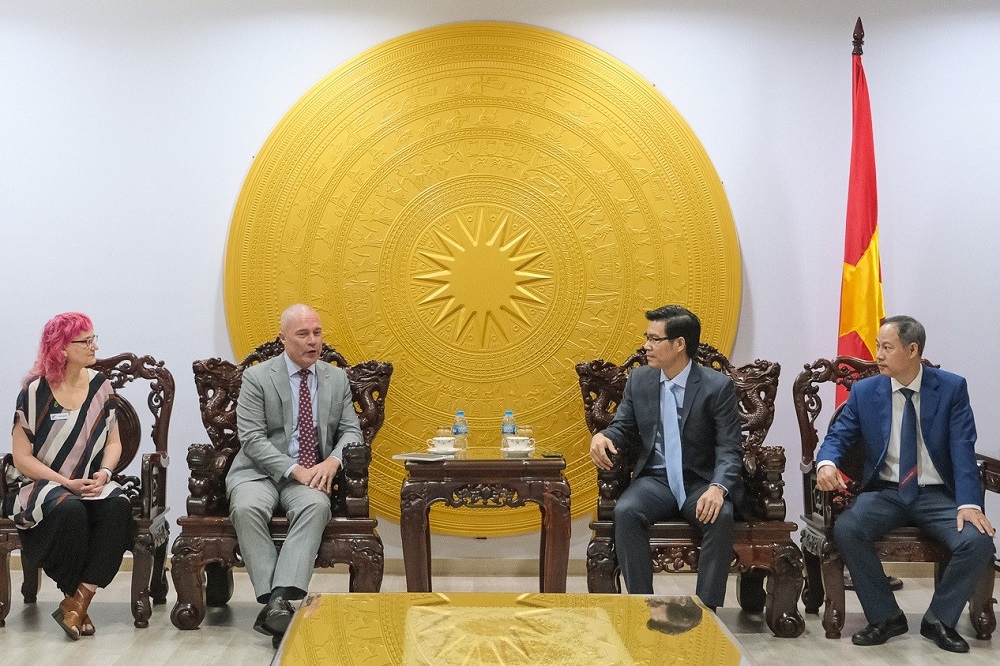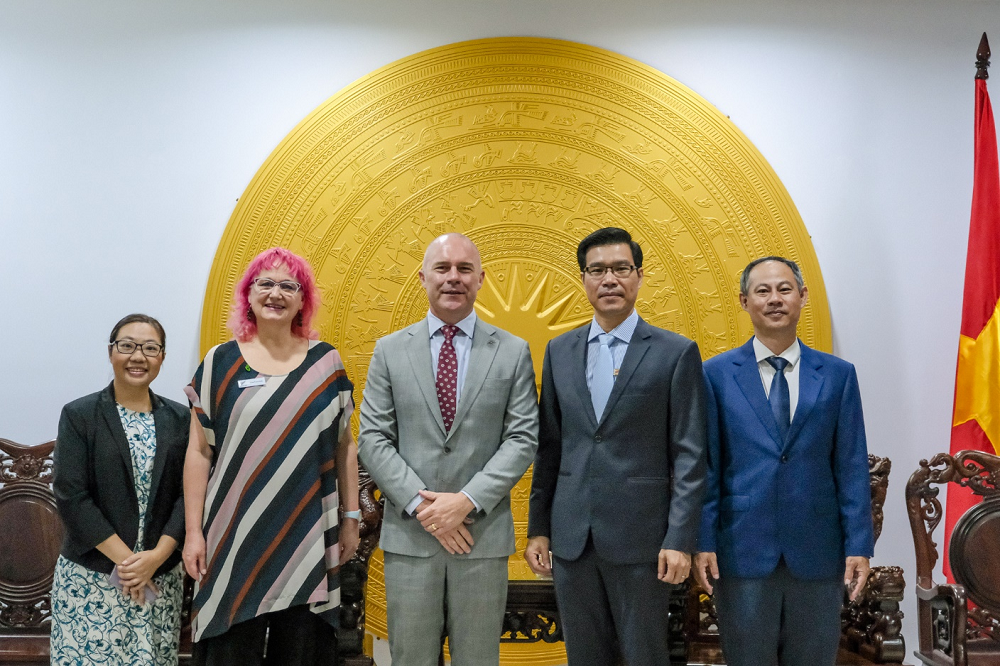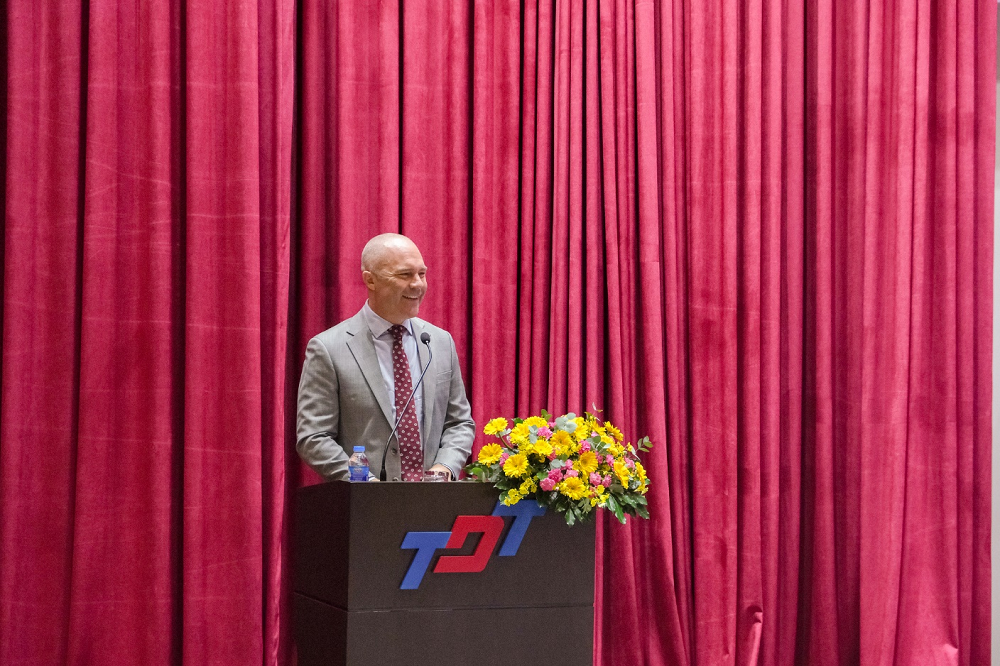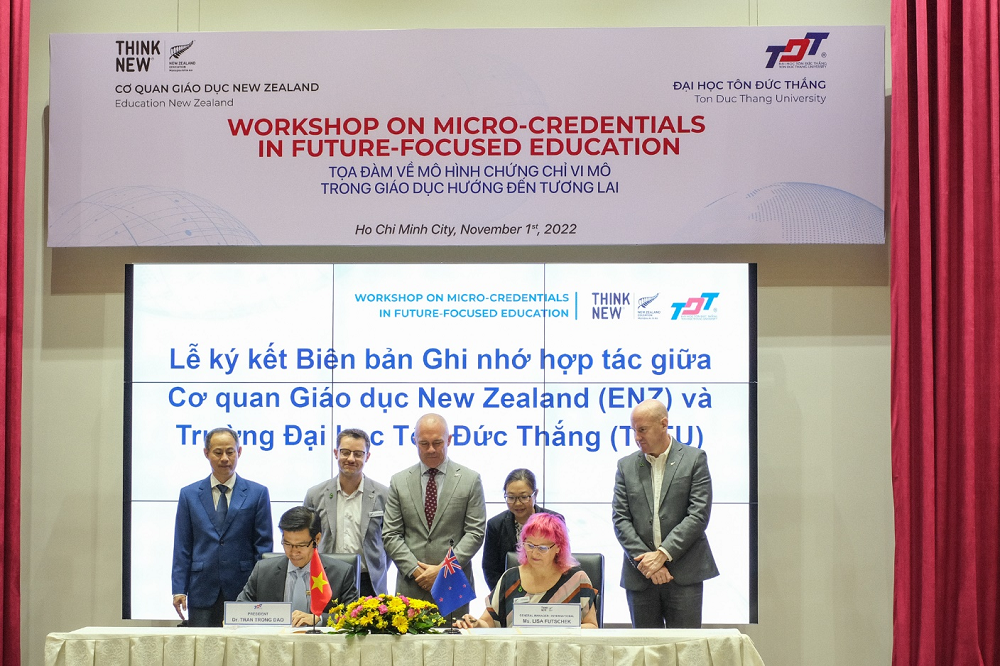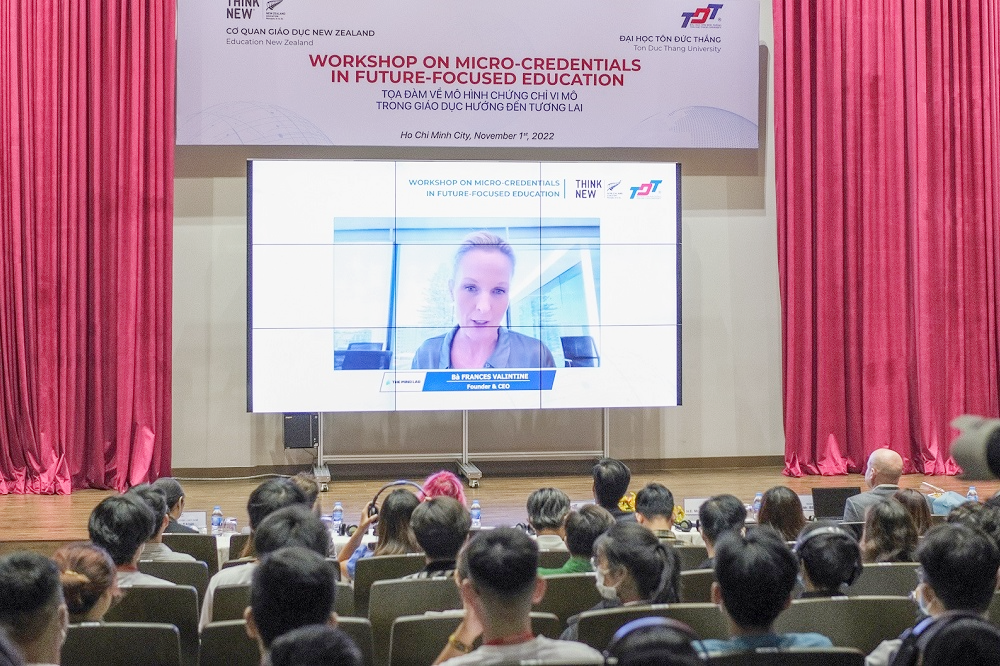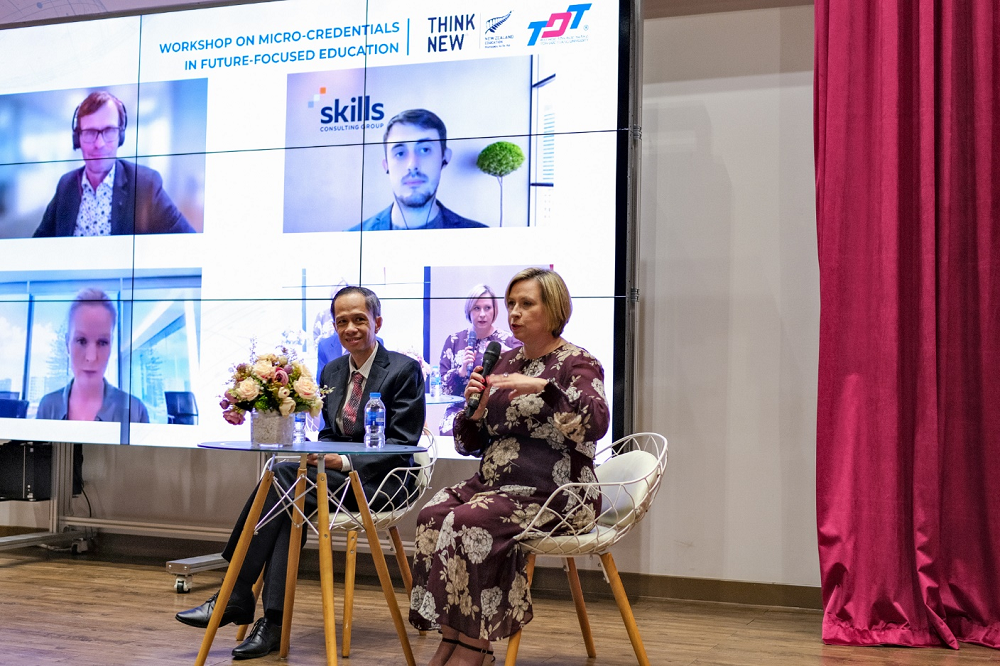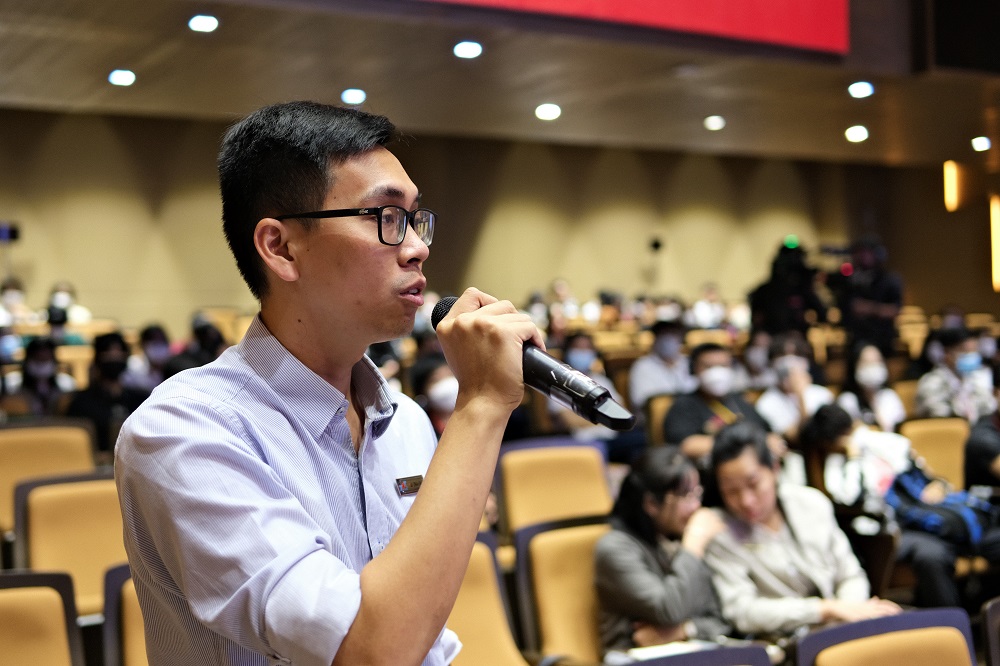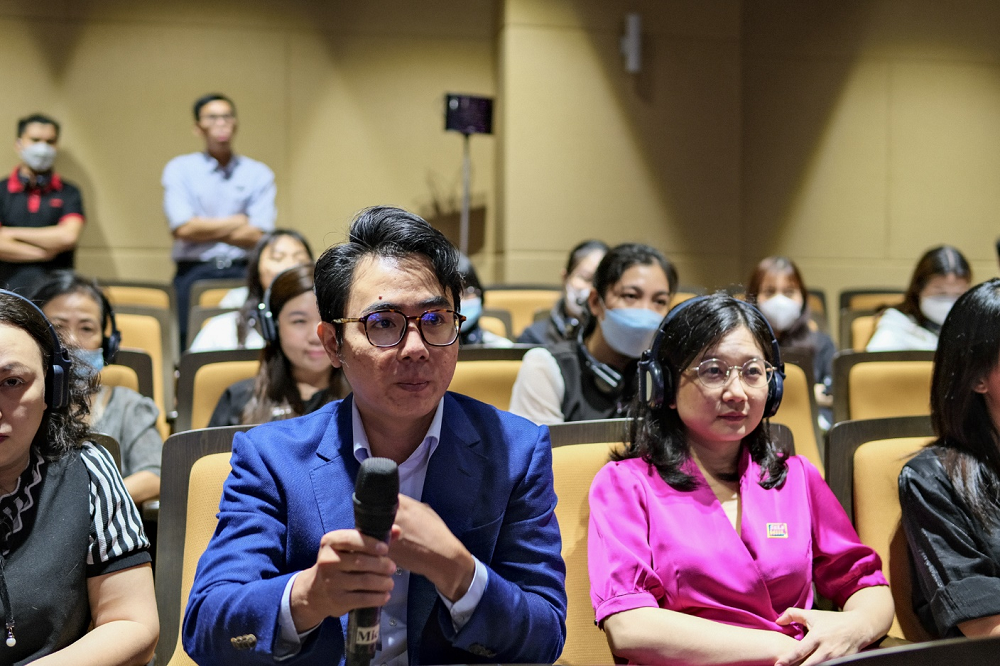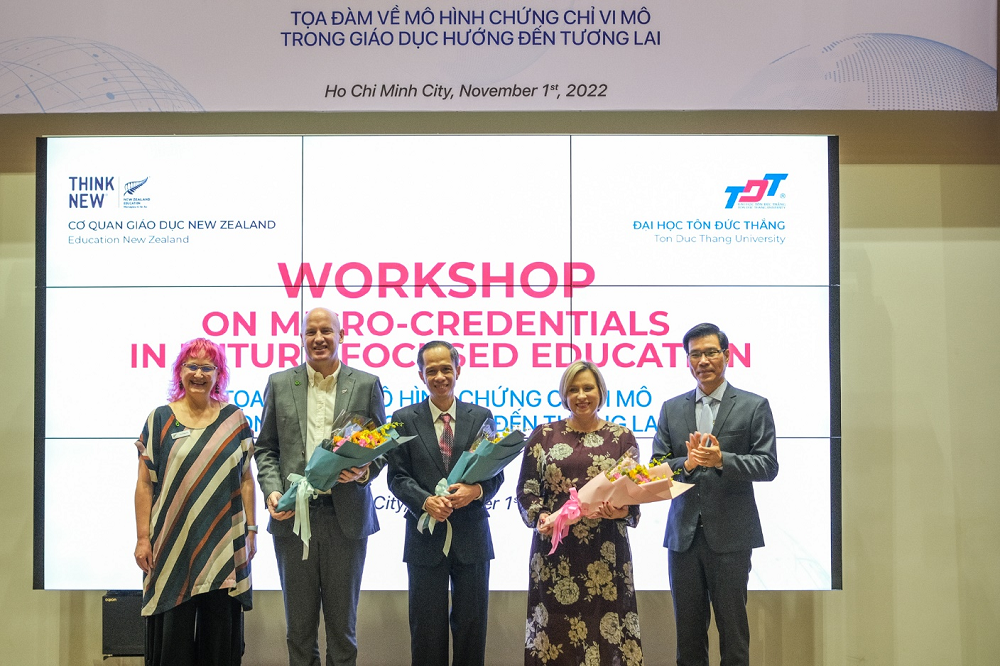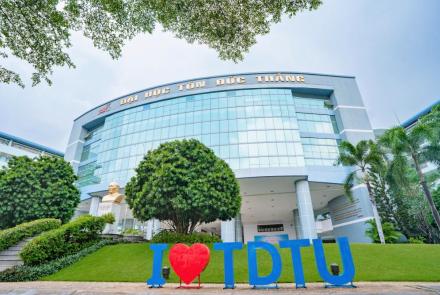Workshop on Micro-credentials in Future-focused Education
On the morning of November 1, 2022, Ton Duc Thang University (TDTU) in collaboration with the Education New Zealand (ENZ) held a workshop on Micro-credentials in Future-focused Education. The workshop attracted many TDTU lecturers and students to attend to learn about the new educational model that is gradually becoming a trend in the lifelong learning process.
Attending the workshop were Mr. Joseph Nelson - Consul General of New Zealand in Ho Chi Minh City, Ms. Lisa Futschek - General Manager of the International Division, Mr. Ben Burrowes - Regional Director, Asia at Education New Zealand; Mr. Truman Pham - Postgraduate Program Director, The Mind Lab.
On the TDTU side, there were Dr. Tran Trong Dao - Acting President, Dr. Dinh Hoang Bach - Acting Director of the International Cooperation, Research and Training Institute, and leaders of some functional units and specialized faculties.
In his speech, Dr. Tran Trong Dao thanked ENZ and the New Zealand Consulate General’s diplomatic mission for an effective cooperation program, opening up many new opportunities for TDTU students to integrate into a modern international environment like New Zealand. Dr. Tran Trong Dao also greeted the speakers participating in the workshop to share more knowledge and approach to micro-credentials for lecturers and students of the University.
Mr. Joseph Nelson expressed his pride in being a connection to help ENZ and TDTU effectively implement cooperation programs in education and other fields. He also shared about the importance of lifelong learning and hoped that the workshop would help TDTU students deepen their awareness and participate in the implementation.
On this occasion, ENZ and TDTU also signed a memorandum of cooperation to create cohesion between the two sides, and promoted upcoming cooperation projects between New Zealand educational institutions and TDTU.
During the workshop, the speakers shared about the importance of lifelong learning, current and future business requirements for the workforce; at the same time, answering questions from lecturers and students about the approach to and verification of micro-credentials, the role of this certificate in professional training and vocational education, methods of applying digital and technology platforms to support graduate programs, micro-credentials and skills enhancement programs.
Education towards lifelong learning is one of the future directions of higher education. Currently, in addition to formal learning from the University, students can be equipped with different knowledge and skills from short-term training courses to meet modern educational trends in the world. These courses quickly update knowledge about new areas in the curriculum according to 3 criteria: concise, focused and easy to understand. Thanks to the advantage of focusing on only a few skills and professional backgrounds, micro-credentials make it easy for students to apply their acquired knowledge in their work or create a premise for continuing to pursue higher education in the future.
